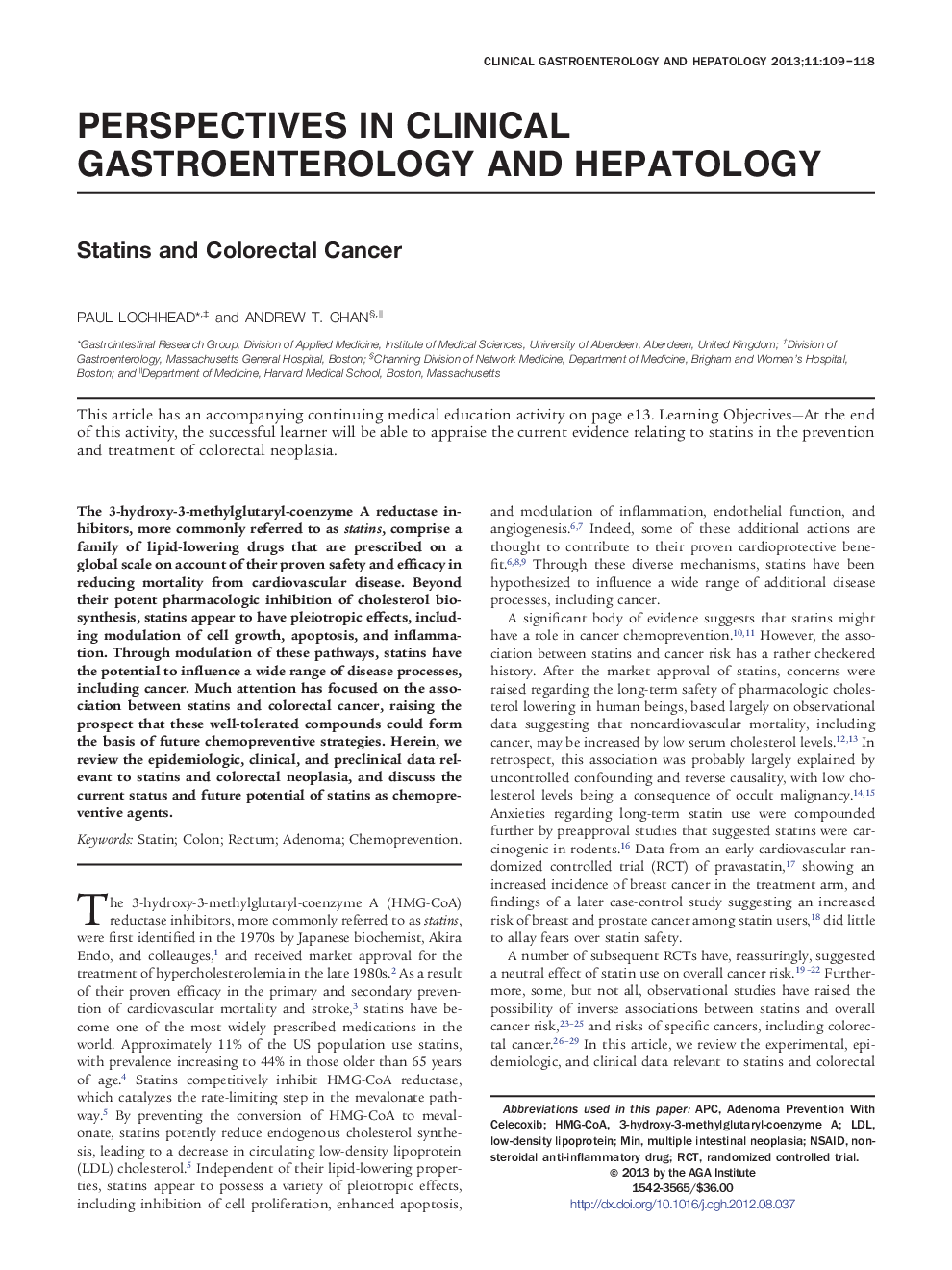| Article ID | Journal | Published Year | Pages | File Type |
|---|---|---|---|---|
| 3282655 | Clinical Gastroenterology and Hepatology | 2013 | 10 Pages |
Abstract
The 3-hydroxy-3-methylglutaryl-coenzyme A reductase inhibitors, more commonly referred to as statins, comprise a family of lipid-lowering drugs that are prescribed on a global scale on account of their proven safety and efficacy in reducing mortality from cardiovascular disease. Beyond their potent pharmacologic inhibition of cholesterol biosynthesis, statins appear to have pleiotropic effects, including modulation of cell growth, apoptosis, and inflammation. Through modulation of these pathways, statins have the potential to influence a wide range of disease processes, including cancer. Much attention has focused on the association between statins and colorectal cancer, raising the prospect that these well-tolerated compounds could form the basis of future chemopreventive strategies. Herein, we review the epidemiologic, clinical, and preclinical data relevant to statins and colorectal neoplasia, and discuss the current status and future potential of statins as chemopreventive agents.
Keywords
Related Topics
Health Sciences
Medicine and Dentistry
Gastroenterology
Authors
Paul Lochhead, Andrew T. Chan,
